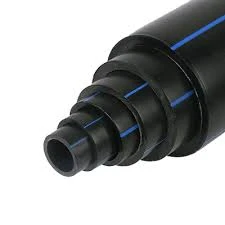Oct . 16, 2024 04:11 Back to list
High-Quality PVC Pipes for Efficient Water Supply Systems
The Role of PVC Water Supply Pipes in Modern Plumbing Systems
In the realm of plumbing, the choice of materials plays a pivotal role in ensuring efficiency, durability, and safety. Among the various options available, Polyvinyl Chloride (PVC) pipes have emerged as a leading material for water supply systems. This article delves into the advantages, applications, and considerations associated with PVC water supply pipes, making a case for their widespread use in modern infrastructure.
What is PVC?
PVC, or Polyvinyl Chloride, is a synthetic plastic polymer that is manufactured through the polymerization of vinyl chloride. Known for its versatility, PVC is not only used in construction but also in a variety of applications such as medical devices, automotive parts, and electrical cable insulation. In the context of plumbing, PVC is prized for its lightweight, corrosion-resistant, and non-toxic characteristics.
Advantages of PVC Water Supply Pipes
1. Corrosion Resistance One of the most significant benefits of PVC pipes is their resistance to corrosion and chemical wear. Unlike traditional metals that can rust or degrade when exposed to certain chemicals, PVC maintains its integrity and performance, thereby providing a longer lifespan for water supply systems.
2. Lightweight PVC pipes are considerably lighter than metal alternatives like copper or steel. This property simplifies transportation and installation, reducing labor costs and time during construction. The ease of handling also minimizes the need for heavy machinery, making it an eco-friendly option.
3. Cost-Effectiveness When comparing the costs associated with installation and maintenance, PVC pipes typically present a more economical choice over their lifespan. Lower manufacturing costs and durability mean that both initial investment and long-term expenditures are minimized.
4. Non-Toxic PVC is a safe choice for water supply systems, as it does not leach harmful chemicals into the water. This characteristic is particularly crucial for residential applications where the health and safety of families are paramount.
pvc water supply pipe

5. Versatility and Range PVC pipes come in various sizes and pressure ratings, making them suitable for a wide range of applications—from residential plumbing to large municipal water systems. This versatility allows for their use in both underground and above-ground installations.
Applications of PVC Pipes
PVC water supply pipes are widely used across various sectors. In residential settings, they are commonly employed for potable water distribution, drainage lines, and irrigation systems. In commercial applications, building codes often require the use of PVC pipes for fire sprinkler systems and wastewater management due to their reliability and performance.
Municipalities also benefit from PVC’s application in water distribution networks. Many cities have upgraded their plumbing infrastructure with PVC, recognizing the long-term cost savings and reliability that these pipes provide. Moreover, their resistance to biofouling makes them an appealing choice for both urban and rural water supply systems.
Considerations and Limitations
While PVC pipes come with numerous advantages, there are some considerations to bear in mind. PVC can become brittle in extremely cold temperatures, which may lead to cracking. Although UV resistance is a feature of many PVC formulations, prolonged exposure to sunlight can degrade unprotected pipes, necessitating the use of protective coatings or burying the pipes.
Furthermore, joining methods for PVC require careful attention. Solvent welding is commonly used, but improper techniques can lead to leaks. Therefore, ensuring that installation is performed by trained professionals is crucial for optimal performance.
Conclusion
In conclusion, PVC water supply pipes stand out as an exemplary choice for modern plumbing systems due to their corrosion resistance, lightweight nature, cost-effectiveness, and safety. As industries move toward sustainable and efficient building practices, the role of PVC is likely to expand further. By understanding the benefits and limitations of PVC pipes, builders and homeowners can make informed decisions that enhance the quality and durability of their water supply systems. As technology and materials continue to evolve, PVC pipes represent a forward-thinking choice that aligns with contemporary needs and future demands in plumbing.
-
High-Quality PPR Pipes and Fittings Durable ERA PPR & PVC PPR Solutions
NewsJul.08,2025
-
Black HDPE Cutting Board - Durable, Non-Porous & Food Safe HDPE Plastic Cutting Board
NewsJul.08,2025
-
High-Quality CPVC Panel Durable HDPE & PVC Panels Supplier
NewsJul.08,2025
-
Double PE Welding Rod Supplier - High Strength, Durable & Versatile Welding Solutions
NewsJul.07,2025
-
High-Quality PVC-O Pipe Supplier Durable 75mm PVC Pipe & Connections Leading PVC Pipe Company
NewsJul.07,2025
-
HDPE Drainage Pipe Supplier – Durable & Corrosion-Resistant Solutions
NewsJul.06,2025

